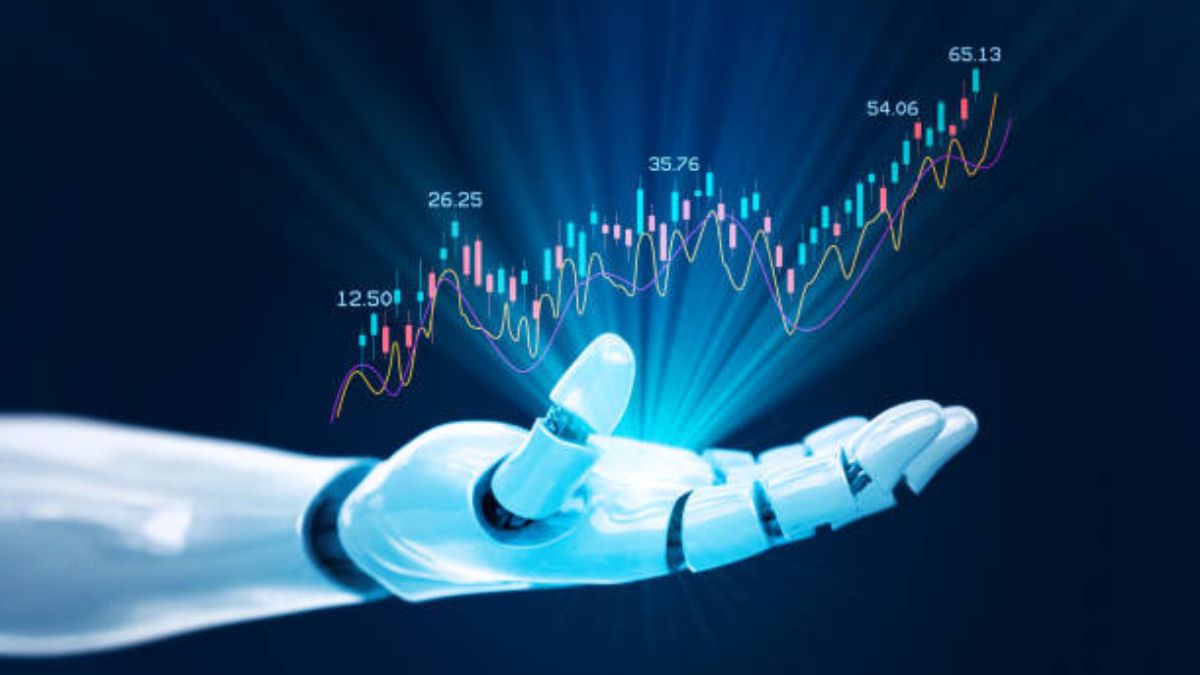
Artificial Intelligence (AI) is no longer just a buzzword; it has firmly established itself as a game-changer in the world of finance and stock trading. By analyzing vast amounts of data, identifying trends, and executing trades in real-time, AI has the ability to make decisions at speeds and accuracy levels far beyond human capability.
AI trading is shaping the future of stock markets by automating processes, predicting market behavior, and minimizing human error.
The global AI trading market, valued at $18.2 billion in 2023, is expected to nearly triple by 2033, reflecting its growing importance in financial markets.
How AI Trading Works
At its core, AI trading uses machine learning (ML) and predictive analytics to identify patterns and make data-driven decisions in real-time. AI models are trained on historical data, market news, and other relevant financial indicators to predict how markets will behave under certain conditions. These predictions are then used to guide trading decisions.
For instance, AI can identify a trend in the price movements of a stock by analyzing millions of data points, including historical prices, news articles, and even social media sentiment. Once the AI detects a pattern or an anomaly, it can execute buy or sell orders automatically, often faster than a human trader could react.
AI Trading Strategies
Several AI-based strategies are employed in the stock market:
1. Quantitative Trading (Quant Trading)
AI-driven quantitative trading uses mathematical models to analyze large datasets and identify potential investment opportunities. AI traders can process price and volume data to spot trends and make informed decisions on when to buy or sell large volumes of shares.
Example: A quantitative trading algorithm might detect that a particular stock has shown a consistent price increase whenever its trading volume crosses a specific threshold. The AI could then execute trades based on this data pattern.
2. High-Frequency Trading (HFT)
High-frequency trading involves executing a large number of trades in microseconds. AI is particularly useful here, as it can analyze multiple markets simultaneously and complete trades at lightning-fast speeds.
Example: An HFT algorithm could place buy and sell orders across several markets within fractions of a second, profiting from small price discrepancies that only exist for milliseconds.
3. Sentiment Analysis
AI can analyze data from news sources, social media, and financial reports to gauge the overall sentiment around a stock. This process, known as sentiment analysis, allows AI traders to make decisions based on public opinion and market sentiment.
Example: If AI detects a sudden surge in positive social media posts about a company’s product launch, it could trigger buy orders for that company’s stock before the market reacts.
4. Arbitrage Trading
AI-powered arbitrage trading involves identifying price discrepancies in the same asset traded on different markets. AI algorithms can detect these differences instantly and execute trades to capture the profit.
Example: If a stock is trading at $100 on the New York Stock Exchange (NYSE) but at $101 on the London Stock Exchange (LSE), the AI could buy the stock on NYSE and sell it on LSE for a quick profit.
5. Risk Management and Predictive Modeling
AI uses predictive models to analyze past market behavior and predict future outcomes. These models help traders optimize their portfolios and manage risks more effectively.
Example: AI can analyze a trader’s portfolio and predict potential risks based on historical market downturns, suggesting adjustments to minimize losses.
Benefits of AI Trading
- Speed and Efficiency: AI can process vast amounts of data in seconds and execute trades with precision, giving traders a competitive edge.
- Predictive Analytics: AI’s ability to predict market movements can help traders make informed decisions and capitalize on trends before they become widely recognized.
- Reduced Human Error: By removing emotions from the equation, AI eliminates errors caused by impulsive decision-making, fear, or greed.
- 24/7 Trading: AI algorithms can monitor markets around the clock, ensuring no trading opportunities are missed.
- Backtesting: AI allows traders to test their strategies on historical data, refining their approaches before using real money.
Risks of AI Trading
- Lack of Transparency: AI models can be complex and difficult to understand, making it hard for traders to know exactly how decisions are being made.
- Data Dependence: AI relies heavily on historical data to make predictions, which may not always reflect future market conditions, especially in times of unprecedented events (e.g., geopolitical tensions or pandemics).
- Over-Reliance on Technology: While AI can automate many processes, technical failures, system crashes, or cybersecurity breaches can disrupt trading and lead to significant losses.
Conclusion
AI has transformed the world of stock trading by enabling faster, smarter, and more efficient decision-making. As technology continues to evolve, AI is likely to play an even bigger role in shaping the future of financial markets.
However, while AI offers numerous benefits, it is not without risks. Traders must remain cautious, ensuring they understand how the algorithms work and are prepared for potential challenges, such as system failures or unpredictable market conditions.
For those willing to embrace AI, the future of trading holds immense possibilities. Machine learning, predictive modelling, and automated trading are poised to revolutionize market operations.
Disclaimer
The information provided here is for educational purposes only and is not financial advice. Always conduct your own research before investing in cryptocurrency.

